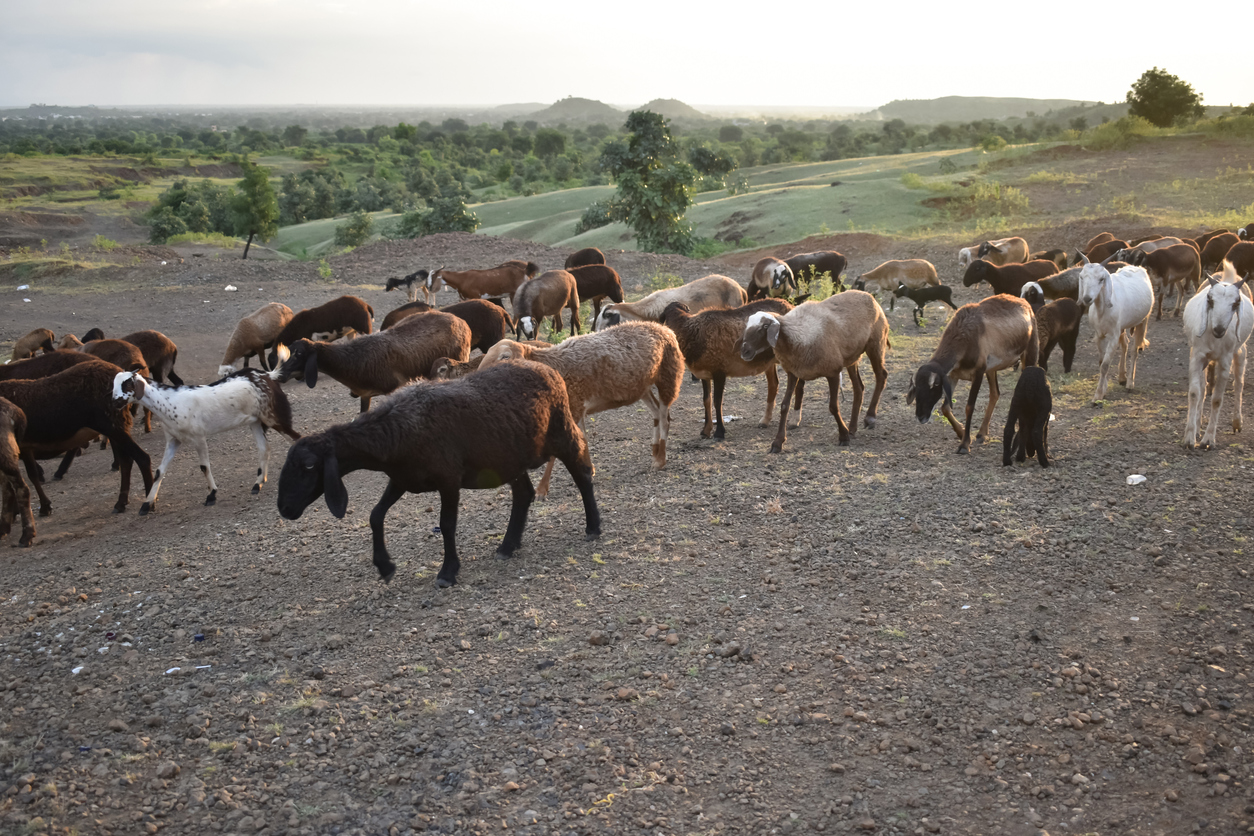- 您的话题内容不能为空。
- 作者帖子
- 7 4 月, 2025 11:13 上午 #622856

Intensive small ruminant production, which primarily involves the farming of animals like goats and sheep, has become a significant component in the agricultural sector.
The potential of this system for meat production and income generation has garnered attention due to its ability to meet the growing demand for animal protein while providing a profitable source of livelihood for farmers.
By optimizing breeding, nutrition, and management practices, small ruminant farming can be highly productive, ensuring a steady supply of meat and contributing to rural economic development.
1. The Importance of Selective Breeding for Meat Production
Selective breeding is a key factor in maximizing the potential of intensive small ruminant production for meat. Through careful selection of animals based on desirable traits, such as fast growth rates, disease resistance, and high-quality meat production, farmers can significantly improve the productivity of their herds.
These breeding practices allow for more efficient production, ensuring that small ruminants reach market weight in a shorter time frame. As a result, farmers can generate more income by producing higher quantities of meat with fewer resources, thus making the practice a viable option for income generation.
2. Nutritional Management and Feed Optimization
In intensive small ruminant production, nutritional management plays a crucial role in ensuring the health and productivity of the animals.
By providing a balanced diet tailored to the specific needs of goats and sheep, farmers can improve weight gain, reproductive performance, and overall meat production.
The use of high-quality forage, supplemented with concentrated feed, ensures that the animals receive the necessary nutrients to grow efficiently. Optimized feeding systems reduce feed
wastage, which lowers operational costs and increases the profitability of meat production, contributing directly to farmers’ income.
3. Housing Systems and Management Practices for Maximum Yield
Effective housing systems and management practices are essential for maximizing the yield of small ruminants in an intensive farming setup.
By utilizing well-designed shelters that protect animals from extreme weather conditions and disease, farmers can ensure the health and well-being of their herds. Housing systems with proper ventilation and waste management contribute to better overall hygiene, reducing the risk of diseases that could affect productivity.
Moreover, regular monitoring and good management practices, including parasite control and vaccination programs, help maintain high production levels, leading to a steady supply of meat and higher income for farmers.
4. Disease Control and Health Management
Disease control and health management are fundamental to the success of intensive small ruminant production. Small ruminants are susceptible to a variety of diseases that can hinder growth rates and meat quality, such as parasitic infections and respiratory illnesses.
By implementing strict health management protocols, including regular deworming, vaccination, and biosecurity measures, farmers can prevent outbreaks that could disrupt production.
Maintaining the health of the animals not only enhances meat production but also reduces losses due to sickness, ensuring a more consistent and reliable income from small ruminant farming.
5. Economic Benefits and Market Access for Smallholder Farmers
The economic potential of intensive small ruminant production for meat and income generation lies in
its ability to offer smallholder farmers access to local and international markets. With the right production systems in place, farmers can consistently supply high-quality meat, which is in demand due to the growing preference for small ruminants over other meats in many regions.
By establishing strong marketing networks, farmers can tap into profitable markets, whether they are selling to local butchers, supermarkets, or exporting to other countries.
This market access provides farmers with a stable source of income, improving their financial security and contributing to rural economic development.
In conclusion, intensive small ruminant production holds substantial potential for meat and income generation.
By focusing on selective breeding, optimized nutrition, effective housing systems, and rigorous health management, farmers can enhance productivity and ensure a steady supply of high-quality meat.
As smallholder farmers increasingly adopt these practices, the sector can contribute significantly to rural livelihoods and the broader agricultural economy.
The success of intensive small ruminant production lies not only in its ability to meet the demand for meat but also in its capacity to provide a sustainable source of income for farmers, improving their quality of life and supporting economic growth.
Read Also: Importance and Classification Of Cattle
- 作者帖子
- 哎呀,回复话题必需登录。

